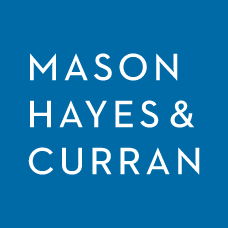Elizabeth Quinn: Supreme Court reminds us courts cannot be used to appeal assessments to tax

Elizabeth Quinn
Elizabeth Quinn, partner at Mason Hayes & Curran (MHC), examines the rulings in two recent Supreme Court cases brought against the Revenue Commissioners.
We review the facts of two recent decisions from the Irish Supreme Court which refused two taxpayers’ permission to appeal against judgments obtained against them for tax and late interest by the Irish Revenue Commissioners. These are important outcomes as they helpfully illustrate for business owners the perils of failing to appeal assessments made by Revenue through the proper statutory channels prior to being sued for the amount in court.
The cases were connected on the basis that the defendants were business owners of a fast-food business and had at separate times made the tax returns for that business.
Following an audit of that business, assessments were made by Revenue against both defendants for the amount of tax that they were liable to pay. Neither defendant appealed the assessments, In the course of the cases, the taxpayers put forward arguments that there had been no audit, therefore there should be no assessment, also that they had been promised documents which they had no received and further that they did not understand the basis for the assessments.
Given the failure to either pay the amounts in the assessments or appeal them, Revenue ultimately sued both defendants in the High Court for the amounts specified in those assessments.
Revenue was awarded summary judgments in the High Court and which judgments were upheld on appeal to the Court of Appeal. The defendants then sought to further appeal to the Supreme Court.
As well as stating that there had been no audit, that they had been waiting on documents and did not understand the basis for the assessments; their lawyers also argued given the disputes between the parties, the cases should have gone to a full plenary hearing where all the facts could be determined. They also argued that failing to do so led to an absurdity, an inequality and potentially deprived the defendants of an effective remedy.
In response, Revenue noted:
- In accordance with S933(6)(a) of the Taxes Consolidation Act and s 111(2) of the Vat Consolidation Act 2010 an assessment to tax is final and conclusive
- That the defendants had a number of opportunities to identify arguable defences before the assessment became final
- That there is an extensive statutory appeals process (separate to the Courts), which the defendants did not avail of
- That in fact there was still an option open to the defendants to apply for permission to appeal in accordance with s933(7) of the TCA or an option to apply to the Tax Appeals Commissioner
Decision
The Supreme Court rejected the application for permission to appeal the High Court rulings noting that it is “settled law that the court cannot try an issue of fact arising from an assessment made in default of a return other than through the appeals procedure provided in the relevant tax code”.
It also stated that a plenary hearing could not change the amount of the Revenue’s assessment because the legislation is final and conclusive on these points. In other words, it is too late to dispute the liability once it is in court because the legislation sets out that it is final and conclusive. There is a lot of caselaw around this and the defendants’ lawyers could not point to any errors in it which would lead the court to revise this position.
Ultimately the court held that the interests of justice did not warrant a further appeal as the defendants had benefited from two hearings, but had not availed of the statutory appeals mechanism available in Revenue matters.
Conclusion
This decision of the Supreme Court reaffirms robustly the current status quo of existing case law from Deighan v Hearne, to the more recent Forte and di Murro cases (in which MHC acted for the Revenue Commissioners).
Therefore, it is essential that disputes as to amount or underlying facts or circumstances should not be left until the matter is in court, as the assessments at that stage are legally final and conclusive.
Key takeaway
It is firmly settled law that if a taxpayer wishes to dispute an assessment made by Revenue, it is imperative they avail of the statutory appeal channels set in place by the Oireachtas to do so.
The courts cannot be used as an alternative way to appeal assessments to tax.

- Elizabeth Quinn is a partner in the debt recovery team at Mason Hayes & Curran LLP.








